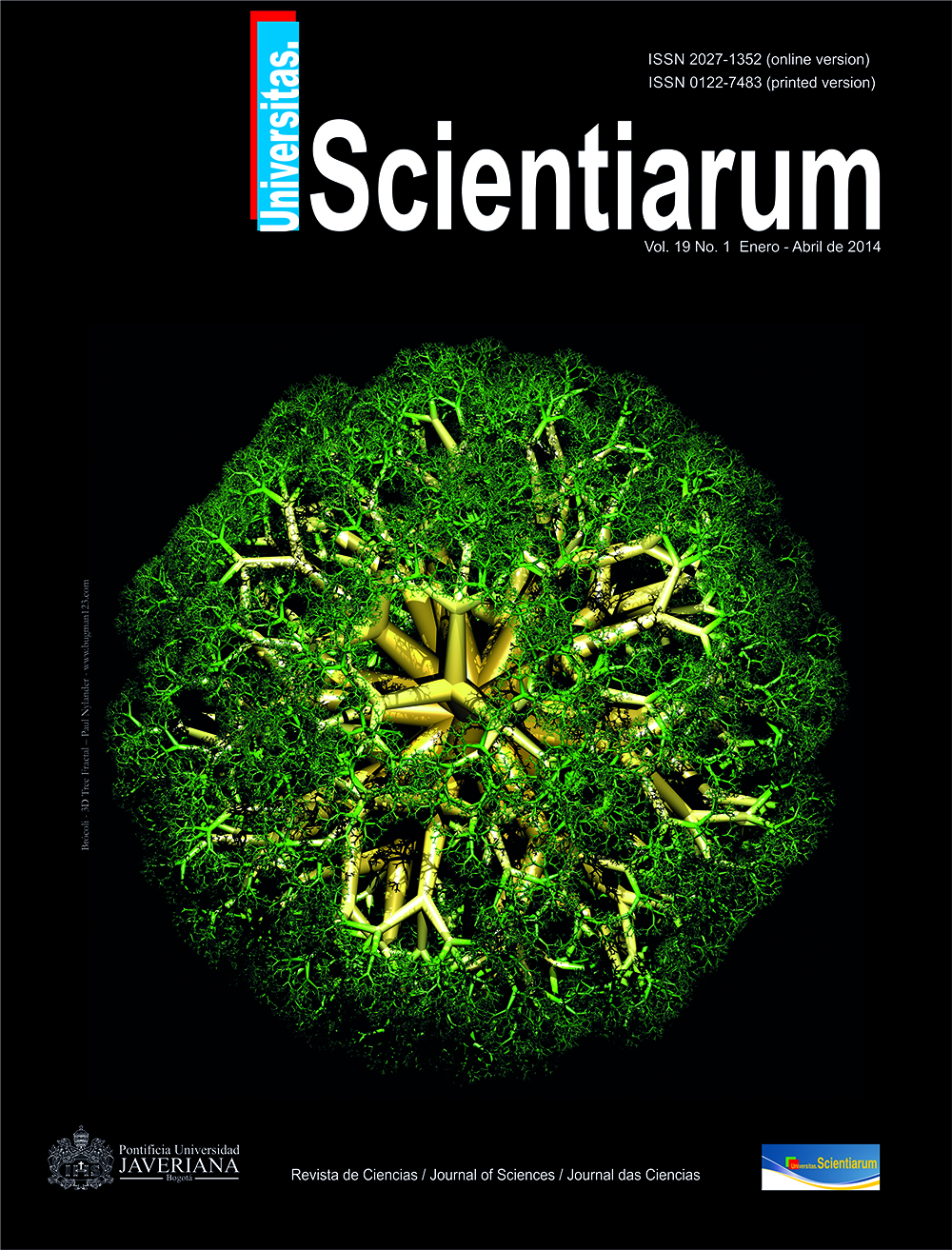Abstract
A systematic study of microwave-assisted transesterification of castor oil was conducted in the presence of ethanol and of potassium hydroxide as catalyst. Effects of various reaction parameters such as reaction time, catalyst concentration, reaction temperature and ethanol-oil molar ratio were analyzed. Ethyl esters were successfully produced by microwave-assisted transesterification. The maximum yield was 80.1% at 60°C, 10:1 alcohol: oil molar ratio, 1.5% potassium hydroxide and 10 min. The results show that there was a reduction in reaction time for microwave-assisted transesterification as compared to conventional heating, yields were slightly affected by temperature from 40-70ºC; this indicates a significant effect of microwaves even at low temperatures.Univ. Sci. is registered under a Creative Commons Attribution 4.0 International Public License. Thus, this work may be reproduced, distributed, and publicly shared in digital format, as long as the names of the authors and Pontificia Universidad Javeriana are acknowledged. Others are allowed to quote, adapt, transform, auto-archive, republish, and create based on this material, for any purpose (even commercial ones), provided the authorship is duly acknowledged, a link to the original work is provided, and it is specified if changes have been made. Pontificia Universidad Javeriana does not hold the rights of published works and the authors are solely responsible for the contents of their works; they keep the moral, intellectual, privacy, and publicity rights. Approving the intervention of the work (review, copy-editing, translation, layout) and the following outreach, are granted through an use license and not through an assignment of rights. This means the journal and Pontificia Universidad Javeriana cannot be held responsible for any ethical malpractice by the authors. As a consequence of the protection granted by the use license, the journal is not required to publish recantations or modify information already published, unless the errata stems from the editorial management process. Publishing contents in this journal does not generate royalties for contributors.



